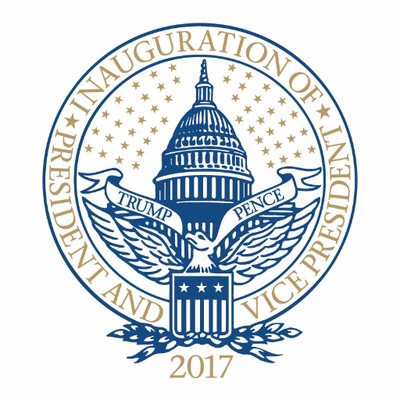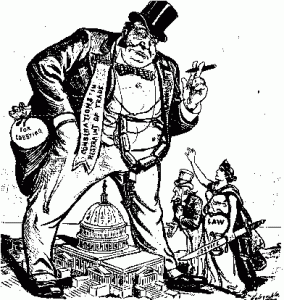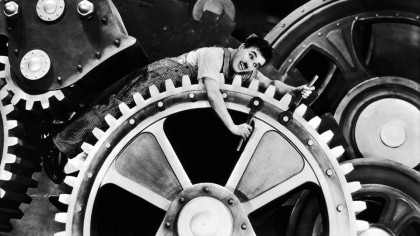Winter Cold Moon
 A gentle snow falls at 5:00 am here on Shadow Mountain, kicking off inauguration week. As my brother, Mark, wrote, we’re about to have the biggest political change in our history on Friday. Irony, thy name today is the calendar. Yes, it’s Martin Luther King day and our president-elect, knowing still his base, has made it a day to declare John Lewis a man of too much talk. The layers of irony could not be separated without a welding torch.
A gentle snow falls at 5:00 am here on Shadow Mountain, kicking off inauguration week. As my brother, Mark, wrote, we’re about to have the biggest political change in our history on Friday. Irony, thy name today is the calendar. Yes, it’s Martin Luther King day and our president-elect, knowing still his base, has made it a day to declare John Lewis a man of too much talk. The layers of irony could not be separated without a welding torch.
There is this, too. The world’s 8 richest men hold as much wealth as the poorest 3.6 billion, half of the world’s population. (NYT on Oxfam report, 1/16/17) In what must be the chief irony of this moment (choosing from so many) a billionaire who has gold plated rooms, towers named after himself and a callous disregard for truth, justice and the American way came to the Presidency thanks to those left behind by this Gilded Age on Steroids.
 The takeaway from this challenge to the roots of our Republic lies in understanding the power of the left behind. In this case those left behind are the former rulers of the land: white men and their families. Their advocates include the KKK, the White Citizen’s Council, various militia and tea party groups and Donald Trump. Wow. Look at that sentence. Yes, the election was lost because former manufacturing workers, miners, those without a college education, came together for one last grasp, leaning far off the carousel horse for the brass ring.
The takeaway from this challenge to the roots of our Republic lies in understanding the power of the left behind. In this case those left behind are the former rulers of the land: white men and their families. Their advocates include the KKK, the White Citizen’s Council, various militia and tea party groups and Donald Trump. Wow. Look at that sentence. Yes, the election was lost because former manufacturing workers, miners, those without a college education, came together for one last grasp, leaning far off the carousel horse for the brass ring.
Note that they are far from the only left behind. Think of those 3.6 billion. Think of those whose residence here has suffered barrier after barrier to equal citizenship: blacks, Latinos, LGBT folk, women, immigrants, Native Americans, those very Americans whose champion, Martin Luther King, we celebrate this day, four days before the inauguration.
 But. Working class whites were left behind. Their pain is real. Their anger justified. Their choice of solutions abysmal. 100 years from now historians will be able to see this strange time we call the 21st century and perhaps be able to pull apart the strands of circumstance making it what it is. Was it really globalization that cost all those good-paying blue collar jobs? How much did automation have to do with it? What role did the increasing diversity of the United States play? We are moving to a nation in which no ethnic group will be a majority of the population.
But. Working class whites were left behind. Their pain is real. Their anger justified. Their choice of solutions abysmal. 100 years from now historians will be able to see this strange time we call the 21st century and perhaps be able to pull apart the strands of circumstance making it what it is. Was it really globalization that cost all those good-paying blue collar jobs? How much did automation have to do with it? What role did the increasing diversity of the United States play? We are moving to a nation in which no ethnic group will be a majority of the population.
One real and very difficult problem is education as a divider of the nation*. This excerpt from an ABC News article and the reality of 8 men owning more than 3.6 billion people make a quick explanation for the rise of right wing populism not only here in the U.S., but in Europe, too. The truth is neither liberals nor conservatives know how to repair this chasm. Liberals have ignored the pain of downwardly mobile whites and paid in the coin of the political realm for it. Hopefully, we will now come together as a left-wing and promote policies that will lift up all working class people, once we discover what might work.
BTW: repealing basic health care is not the route toward a solution.
*”Americans with no more than a high school diploma have fallen so far behind college graduates in their economic lives that the earnings gap between college grads and everyone else has reached its widest point on record.
The growing disparity has become a source of frustration for millions of Americans worried that they — and their children — are losing economic ground.
College graduates, on average, earned 56 percent more than high school grads in 2015, according to data compiled by the Economic Policy Institute. That was up from 51 percent in 1999 and is the largest such gap in EPI’s figures dating to 1973.
Since the Great Recession ended in 2009, college-educated workers have captured most of the new jobs and enjoyed pay gains. Non-college grads, by contrast, have faced dwindling job opportunities and an overall 3 percent decline in income, EPI’s data shows.
“The post-Great Recession economy has divided the country along a fault line demarcated by college education,” Anthony Carnevale, director of Georgetown University’s Center on Education and the Workforce, said in a report last year.” ABC News
